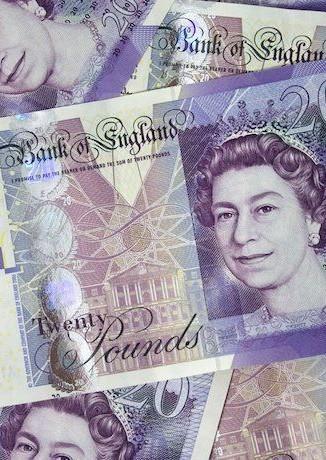Requirements for opening a bank account in the UK
Having a bank account in the UK is one of the first steps you should consider when moving to the United Kingdom, whether for work, school, or personal reasons.
Having access to a local financial system makes everyday life easier: from receiving your salary to paying rent or making purchases without worrying about fees or currency exchange rates.
Here’s how to complete this process quickly and easily.

Everything you need to know to open a bank account in the UK
1. Benefits of having a bank account in the UK
Having a local financial tool will allow you to better manage your income and expenses. Employers generally require one to make payments, and many landlords prefer to receive rent directly from a British entity.
Additionally, you’ll avoid additional fees for using foreign cards and can manage your funds in pounds sterling.
Another advantage is the ease of sending and receiving money from your home country, which is very useful if you share financial responsibilities with people abroad or if you need to make regular transfers.
2. Can you open a bank account in the UK from outside the country?
In most cases, it’s not possible to start this process without being physically present in the United Kingdom. This is because banks usually require proof of residency.
However, there are some alternative solutions, such as digital financial platforms, that allow this without being in the country. These options can be useful if you don’t yet have a local address or need a temporary solution.
3. Choosing the right bank
It’s best to research the different banks and their requirements. Some of the most flexible institutions for new residents are Halifax and Barclays, although others such as Lloyds, TSB, and HSBC also offer good services.
Choosing a branch close to your home can be practical if you need to conduct in-person transactions, although many transactions can be done online.
In any case, the important thing is to compare terms and find an option that suits your current needs. For those just starting out, a basic account is usually sufficient.
4. Required documentation to open a bank account in the UK
To begin the process, you’ll need at least two essential documents:
- a valid passport;
- and proof of residency.
The latter can be a rental agreement, an official letter from the government, utility bills, a British driver’s license, or any other document that proves your residency in the country.
Having an employment contract can also make the process easier, although it’s not essential in all cases. Some banks may accept applications with just a passport, especially if they have experience serving newcomers.
5. Request an appointment to open your bank account in the UK
Depending on the bank, you may need to make an appointment to submit your application. This can be done online, by phone, or directly in the branch.
During the interview, they’ll ask you questions about your time in the United Kingdom, your income, your planned use of the account, and explain the available options.
Don’t worry if you don’t get it right the first time. Some banks may be more demanding than others. Ideally, you should make appointments with several banks at once to increase your chances of success.
6. Types of bank accounts in the UK
In the United Kingdom, there are several types depending on your needs and personal situation:
- Basic: ideal if you’re not yet employed. Allows you to make payments, withdraw cash, and receive transfers. It does not include overdrafts.
- Standard: similar to the above, but with the option to go into negative balances up to a certain limit. It usually requires proof of income.
- Special: offers benefits such as insurance, loyalty points, or discounts, although it may require additional requirements and monthly fees.
- Savings: it complements the main account and allows you to keep money separately. It usually has a small annual return.
7. Fees and commissions
One of the advantages of the British financial system is that basic transactions are generally free. Opening and maintaining an account, issuing a debit card, or withdrawing money from local ATMs is usually free.
8. Debit and credit cards
Debit cards come included with almost all accounts and will allow you to operate your accounts seamlessly both in physical stores and online.
Credit cards, on the other hand, require you to meet certain criteria, such as having stable employment or a financial history in the United Kingdom. Make sure you fully understand the terms before applying for one.
Conclusion
Having a local financial tool is essential to navigate comfortably in the United Kingdom. Although it may seem like a complex process at first, with the right information and documentation, it can be simpler than you imagine.
Do your research, prepare your paperwork, and don’t hesitate to consult different institutions until you find the option that best suits your circumstances.
Related Posts
Common business model types in the UK
Which business model to choose for your company in the UK The business model you…
Your company in UK: all you need to know
Everything you need to know when starting a company in UK Launching a company in…
Keys to success when starting a business in UK
Key steps to succeed when starting a business in UK If you’re thinking about starting…
Why starting a company in UK makes sense
Why starting a company in UK is a smart business move If you’re considering setting…




